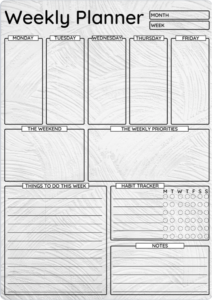Bedtime Routines and Beyond: Setting Kids Up For Success
BY TRISTAN HEAD

If you’ve been to the store lately, you’ve seen the back-to-school signs and the aisles lined with stationery supplies, packaged snacks and, my wife’s personal favorite, glittery accessories. In just a few short weeks the community’s youth will shift from music in the park to zero-hour rehearsals; outdoor picnics to practices; playdates to reading logs. These changes encapsulate busier schedules and demands of a new school year which often result in a bit more stress, both positive and negative, for the children in our community.
Although supply lists are necessary, there are more important ways we can support our children and our students with the rapid, and sometimes scary, shift that’s about to come that you can’t find at the store. Here are a few ways to decrease stress and connect with your kiddo to prepare them, and you, for a great year.
- Talk about it: Even the simplest activity can be intimidating if you can’t visualize it. Start talking about the new school year now. The teachers, the places, the bus, the new schedule. Many of the school websites have pictures of the staff and school. Visit the playground. Talk about the friends you haven’t seen all summer. If you can, take your kids to meet their teacher and see their classroom. The “Sunday scaries” are real for kids, too.
BCSD Elementary School Open Houses are 1:30 p.m. to 3:30 p.m. on Friday, August 25
Syringa Mountain School Meet Your Teacher 2-4 p.m. on Monday, August 28
WRMS Student Drop-In on Tuesday, August 29
WRHS Open House 6-8 p.m. on Monday, August 28
- Create a schedule: Don’t we all feel a bit better when things are predictable? Children learn better when they feel safe and confident. Predictable and familiar routines are a simple way to help them feel more settled during the school day. Does this feel daunting to you, too? Work backwards from bedtime. Build a schedule that works for your family, bonus points if you can squeeze in some down time. With BCSD adopting early-out Wednesdays, schedules will surely look different at schools this year. Try a visual or a written schedule, Canva has tremendous options. Spiderman calendar? Add it to the back-to-school list.
- Get some sleep: The Sleep Foundation recommends children aged 3-5 years receive 10-13 hours of sleep per night, 6-12 years receive 9-12 hours, and 13-18 years receive 8-10 hours per night. Can you recall the last time you slept for 12 hours? Children need this sleep not only for their growing bodies but also their growing minds; getting enough sleep directly impacts a student’s ability to tune in at school and retain the information they learn. To ensure this happens, get your kids to participate in developing the bedtime routine. Go in and read with them, rather than having them read alone. Nighttime is a quiet time where children are more likely to tell you about their day. Use this time to connect. Then, lights out and tech off.
- Technology: As a parent myself, I am not going to belabor the no-tech talk. All I will say is: be mindful of tech use in your home, not only of your child but of yourself. When considering tech use and limits in your home, consider what tech use is replacing: cooking dinner together, “unplugged” free play, sharing experiences and listening to one another. Try to be present together more than you are alone together.
- Build time to connect: It’s 2023. Parents are juggling more responsibilities now than ever before, and there’s a good chance you put the milk away in the pantry this morning. Now, your schedules are about to get even busier, and there is a lot of pressure to get your children into more sports, more activities, more everything. Time with a trusted adult is the most important gift we can offer our children. Play a game. Build a puzzle. Take a walk. Be present, even for just a few moments. My guess is that we adults need this time just as much as children.
- Support education: Education finds itself in the spotlight often, and we all know the headlines are not always positive. Supporting our kids means supporting our teachers and our schools. Our kids hear everything. Speak positively about the topics and people we want our children to feel positive about. Talk about the purpose of school, of education, of trying hard things, of failing and crying and fighting and getting up again. Be a cheerleader, for our kids in this community and all the adults in this village that are helping to raise them.
School plays an important role in teaching our children how to be confident and creative community members. This begins with their lives at home. As community members – parents, teachers, coaches, etc. – let’s include our kids in the conversations, not just talk at them. They are getting prepared to change our world.

